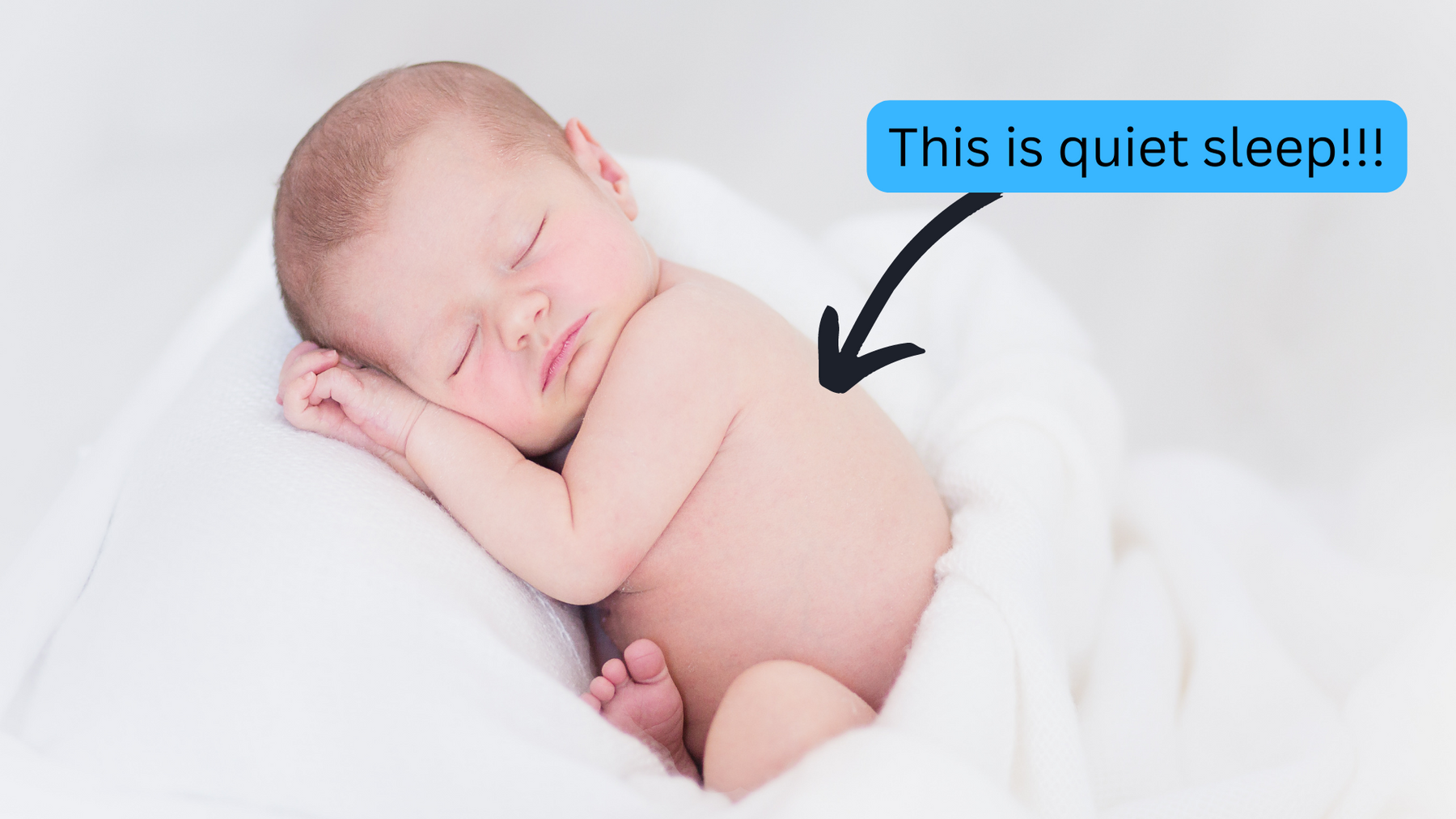
Active Sleep vs. Quiet Sleep
Understanding the sleeping patterns of your baby is key to ensuring proper sleep and, consequently, appropriate developmental growth. It is known that newborns sleep a lot– between 12-16 hours a day generally. Because your newborn sleeps for prolonged periods, it is important to understand certain characteristics of their sleeping behavior. This article will go over some common behaviors related to your newborn's sleep with helpful tips that you can practice to help your baby achieve adequate sleep.
Crying
You may have heard your baby cry during the night causing you to rush over to see what is wrong. Babies communicate through crying. When your baby cries, it is a way for them to communicate that they need something or that they are in distress. More often than not, when your baby cries it is because they are hungry. However, there will be times when your baby is crying for no clear reason. It is important to respond to your baby’s cries and try to soothe them as much as possible so that they can go back to sleep. Crying shouldn’t be too much of a concern as newborns are known to cry up to three hours a day (BetterHealth). Even so, if you notice that your baby seems to be crying too much, consult your doctor to make sure nothing is wrong with your baby.
Active Sleep
Newborns go through two different sleep cycles: active sleep and quiet sleep. Active sleep is where your baby will move around in their sleep– making vocal noises, moving their body, and even opening their eyes (Dumaplin). Why does this happen? This happens because infants' skeletal muscles are not paralyzed during sleep causing them to move around. It is important to understand that this is still sleep for your baby, so if you hear your baby crying out take a little time to make sure that they are awake because they could be in active sleep.
Quiet Sleep
Quiet sleep is just what it sounds like– this is when your newborn will be clearly asleep. It is important to not disturb your baby when they are in quiet sleep. Your newborn will spend about half of their sleeping time in quiet sleep and will spend the other half in active sleep. It is essential to not disturb your baby when they are in quiet sleep. Part of this is ensuring that their sleeping environment has a limited amount of stressors. This includes things that make loud noises or create light. You might also consider a product like a humidifier that can aid your newborn's sleep. The Miro NR08M would be perfect for your newborn as it has built-in humidity sensors along with technology that allows the entire device to be cleaned with just soap and water. Additionally, Miro humidifiers are ultrasonic humidifiers, meaning they do not pose a risk to your child as a warm mist humidifier would. However, always consult with your doctor before using any product near your baby.
